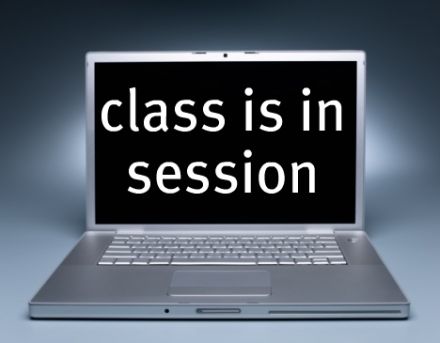
Louisiana’s Foray Into Modular Education
Course Choice another example of state’s commitment to market-based education reform
This Wednesday, Education Week reported on Louisiana’s Course Choice program, a new state initiative that allows public school students to enroll in individual courses outside of their current school. All students in schools deemed failing according to the state accountability system are eligible to participate in these alternatively provided courses, and some additional opportunities will be available for other students who wish to take courses not offered in their local schools. Rather than provide the classes internally, the state will utilize outside providers, thereby giving students and families a choice from a variety of providers for a given course. Public funding, both local and state, will be used to pay for the classes.
The changing nature of school choice
It is no surprise that this policy comes out of Louisiana, a state that has led the way in school choice innovation. Most notably, Louisiana is home to the Recovery School District (RSD), which was created following Hurricane Katrina. The disaster was used as an opportunity to reinvent the traditional school district in New Orleans. The result was a highly decentralized system where the majority of schools are run as charter schools by autonomous, private organizations. Parents and students have a high degree of choice over where to attend school and all schools are held accountable for their performance.
Although not perfect, the RSD has become the largest and most successful experiment in market-based education reform in the country. A thriving marketplace of providers competes to attract students to their schools. The model forces schools to perform acceptably on multiple metrics, including meeting the needs of their community, or face closure.
The RSD exemplifies the most common interpretation of educational “choice,” that is, choice of school in its entirety. Both charter schools and voucher programs (where a student receives a stipend to defray the costs of attending a private school) fall into this category. In contrast, Louisiana’s Course Choice program is leveraging a new unit of change—the individual course–that only Florida, Minnesota, and Utah have really pursued to this point. Under this program, choice and competition can happen without students changing their entire school.
Interdependence and modularity
This innovation is possible because of the increased possibilities for modularity in course content. Modularity exists when components of a system have clean, predictable interfaces and thus can be supplied separately with full certainty that they will work together when assembled. This is in contrast to a highly interdependent system where the pieces must be developed together to ensure functionality. To understand the difference, consider the evolution of personal computers from an interdependent to a modular architecture. In the early days of the industry, IBM had to create every piece of the machine themselves; now most computer makers are marketers and assemblers for other companies’ parts (e.g., an Intel processor, a Microsoft operating system, etc.). The ease of switching out components means each consumer can make dozens of decisions to yield a personalized computer at limited cost.
To date, schools have had a highly interdependent architecture, particularly when it comes to curriculum. New course development is constrained by the nature and content of other existing courses. Each course must fit into a logical sequence (e.g., Algebra must precede both Physics and Calculus) in order for students to understand the more advanced classes. Adding a new course causes further scheduling headaches because of the physical constraints of limited classroom space and the rigidity of class time slots. Schools also have a limited number of teachers and their course loads must be balanced carefully and optimized to keep costs down. The result of these complications is that schools maintain a highly interdependent academic program that is rigid in nature and specific to the school. For this reason, course selection is limited and most courses have to be produced within the school so that they can be properly knitted together. It is this interdependence that leads to cookie-cutter course offerings due to the prohibitive costs of customization.
Louisiana’s Course Choice program, however, is attempting to make course offerings more modular. Although several states and districts have done this for some time, a couple of key trends are making this more and more possible and improving the quality as well. First is the introduction of the Common Core of Standards being adopted by the majority of states. Once there are clear, shared standards for what every student across the country should be learning at each phase in their education, there are suddenly cleaner interfaces in the curriculum (e.g., an 8th grader should be able to swap out their local science class with one provided anywhere else in the country without worrying that it won’t fit with what they’re learned in 7th grade or what they will be learning in 9th grade). This also means that providers will find it much easier to offer courses economically, as the same course material can be used for students across schools, districts, and states.
The second key trend enabling the Louisiana program is the technological advancement of online learning. Although Course Choice is accepting all types of providers, it is particularly positioned to take advantage of online course providers such as Apex Learning, Florida Virtual School, and K12 Inc. Because online courses can be provided anywhere, anytime, they avoid many of the interdependencies of the traditional public school system. And learning management systems make it easier to track and integrate online courses from a variety of providers, thereby alleviating the logistical difficulties of syncing multiple providers with school grading and scheduling systems. Online courses also avoid the resource constraints schools face in providing specialized courses—although a school may not be able to afford a Russian language program for a handful of students, an online provider that serves many schools in a single virtual classroom can. Furthermore, built-in assessment technology makes it easier to understand student learning and consequently course quality—and with Common Core Standards, the same assessments can be applied across courses, which can enable greater accountability for providers.
The future of modular schools
Louisiana’s Course Choice program is an experiment in school modularity and questions the idea that choice can only exist at the school level. Ultimately, it suggests a future where schools, or at least their curriculums, are fully modular. Although students may still show up at a local building, each student has a fully customized schedule of classes from both local brick-and-mortar classrooms and an infinite range of online course providers. A student’s course load is tailored to both what she should be learning and how she learns best. And common standards and rigorous assessments ensure that students are learning the critical competencies required for school success.
The benefits of such a modular system make sense beyond the greater customization for each customer, as courses are easily mixed and matched. It allows specialization of components by suppliers, which allows each to optimize performance and encourage a more robust supply of options (versus the interdependent model, in which individual course suppliers are largely limited to supplemental courses). Also, because individual parts can be swapped out, the time to market for innovations is faster (think how Microsoft can update its Office software seamlessly without requiring changes to the computer hardware). This would allow our public school system to more quickly accommodate the changing demands on our economy and society than building new schools from scratch.
Although Louisiana faces more than a few hurdles in implementing its Course Choice program, its development is an exciting indicator of what’s possible in school choice and personalized learning.
Meredith Liu, a Visiting Education Research Fellow at Innosight Institute, recently completed her Master’s in Business Administration, with distinction, at Harvard Business School (HBS). During her time at HBS, she performed independent research with Professor Clayton Christensen and Innosight Institute on the disruptive potential of online teacher education.




